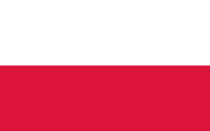
Poland
Poland (Polska ), officially the Republic of Poland (Rzeczpospolita Polska ), is a country located in Central Europe. It is divided into 16 administrative subdivisions, covering an area of and has a largely temperate seasonal climate. With the passing of prominence and prosperity, the country was partitioned by neighbouring states at the end of the 18th century, and regained independence in 1918 with the Treaty of Versailles. After a series of territorial conflicts, the new multi-ethnic Poland restored its position as a key player in European politics. In September 1939, World War II began with the invasion of Poland by Germany, followed by the Soviets invading Poland in accordance with the Molotov–Ribbentrop Pact. Approximately six million Polish citizens, including three million of the country's Jews, perished during the course of the war. As member of the Eastern Bloc, the Polish People's Republic proclaimed forthwith was a chief signatory of the Warsaw Treaty amidst global Cold War tensions. In the wake of the 1989 events, notably through the emergence and contributions of the Solidarity movement, the communist government was dissolved and Poland reestablished itself as a presidential democratic republic. Poland has a developed market and is a regional power in Central Europe, with the largest stock exchange in the East-Central European zone. It has the sixth largest economy by GDP (nominal) in the European Union and the tenth largest in all of Europe. It's one of the most dynamic economies in the world, simultaneously achieving a very high rank on the Human Development Index. which maintains a high-income economy safety, education, and economic freedom. Alongside a developed educational system, the state also provides free university education, social security, and a universal health care system. The country has 16 UNESCO World Heritage Sites, 15 of which are cultural. Poland is a member state of the Schengen Area, the United Nations, NATO, the OECD, the Three Seas Initiative, the Visegrád Group, and guested at the G20.
Смотреть все
1
0
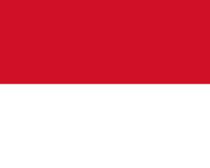
Monaco
Monaco , officially the Principality of Monaco (Principauté de Monaco), is a sovereign city-state, country, and microstate on the French Riviera in Western Europe. It is bordered by France to the north, east and west, and by the Mediterranean Sea to the south. The principality is home to 38,682 residents and is widely recognised for being one of the most expensive and wealthiest places in the world. The official language is French, although Monégasque, English and Italian are spoken and understood by a sizeable group. With an area of it is one of the smallest sovereign states in Europe and the second-smallest in the world, after the Vatican City. Its make it the most densely-populated sovereign state in the world. Monaco has a land border of the world's shortest coastline of approximately and a width that varies between . The highest point in the country is a narrow pathway named Chemin des Révoires on the slopes of Mont Agel, in the Les Révoires Ward, which is above sea level. The principality is about from the state border with Italy. Its most populous Quartier is Monte Carlo and the most populous Ward is Larvotto/Bas Moulins. Through land reclamation, Monaco's land mass has expanded by 20 percent. In 2005, it had an area of only . The principality is governed under a form of constitutional monarchy, with Prince Albert II as head of state. Although Prince Albert II is a constitutional monarch, he wields immense political power. The House of Grimaldi has ruled Monaco, with brief interruptions, since 1297. The state's sovereignty was officially recognised by the Franco-Monegasque Treaty of 1861, with Monaco becoming a full United Nations voting member in 1993. Despite Monaco's independence and separate foreign policy, its defence is the responsibility of France. However, Monaco does maintain two small military units. Economic development was spurred in the late 19th century with the opening of the country's first casino, Monte Carlo, and a railway connection to Paris. Since then, Monaco's mild climate, scenery, and gambling facilities have contributed to the principality's status as a tourist destination and recreation centre for the rich. In more recent years, Monaco has become a major banking centre and has sought to diversify its economy into the services sector and small, high-value-added, non-polluting industries. The state has no income tax, low business taxes, and is well known for being a tax haven. In 2014, it was noted that about 30% of the population was made up of millionaires. Monaco is not formally a part of the European Union (EU), but it participates in certain EU policies, including customs and border controls. Through its relationship with France, Monaco uses the euro as its sole currency (prior to this it used the Monégasque franc). Monaco joined the Council of Europe in 2004, and is a member of the Organisation Internationale de la Francophonie (OIF). It is also the host of the annual street circuit motor race Monaco Grand Prix, one of the original Grands Prix of Formula One and birthplace of Scuderia Ferrari driver Charles Leclerc. The principality has a club football team, AS Monaco, who have become French champions on multiple occasions.
Смотреть все
0
0
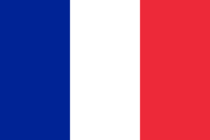
France
France , officially the French Republic (link=no, ), is a country consisting of metropolitan France in Western Europe and several overseas regions and territories. The metropolitan area of France extends from the Mediterranean Sea to the English Channel and the North Sea, and from the Rhine to the Atlantic Ocean. It borders Belgium, Luxembourg and Germany to the northeast, Switzerland, Monaco, and Italy to the east, and Andorra and Spain to the south. The overseas territories include French Guiana in South America and several islands in the Atlantic, Pacific and Indian oceans. The country's 18 integral regions (five of which are situated overseas) span a combined area of and a total population of 67.07 million . France is a unitary semi-presidential republic with its capital in Paris, the country's largest city and main cultural and commercial centre. Other major urban areas include Lyon, Marseille, Toulouse, Bordeaux, Lille and Nice. France, including its overseas territories, has the most time zones of any country, with a total of 12. During the Iron Age, what is now metropolitan France was inhabited by the Gauls, a collection of Celtic tribes. The area was annexed by Rome in 51 BC, developing a distinct Gallo-Roman culture that laid the foundation of the French language. The Germanic Franks arrived in 476 and formed the Kingdom of Francia, which became the heartland of the Carolingian Empire. The Treaty of Verdun of 843 partitioned the empire, with West Francia becoming the Kingdom of France in 987. In the High Middle Ages, King Philip Augustus achieved remarkable success in the expansion of his realm, doubling its size and, by the end of his reign, had made France the most powerful state in Europe. In the mid-14th century, French monarchs were embroiled in a series of dynastic conflicts with their English counterparts, which lasted over 100 years. Emerging victorious from said conflicts, disputes with Spain and the Holy Roman Empire soon followed during the Renaissance but were ultimately less successful. However, French culture flourished and a global colonial empire was established, which by the 20th century would become the second largest in the world. The second half of the 16th century was dominated by religious civil wars between Catholics and Protestants (Huguenots), which severly weakened the country. France once again emerged as Europe's dominant cultural, political, and military power in the 17th century under Louis XIV. In the late 18th century, the French Revolution overthrew the absolute monarchy, establishing one of modern history's earliest republics and drafting the Declaration of the Rights of Man and of the Citizen, which expresses the nation's ideals to this day. In the 19th century, Napoleon took power and established the First French Empire. His subsequent Napoleonic Wars (1803–15) shaped the course of European and world history. Following the collapse of the Empire, France endured a tumultuous succession of governments culminating with the establishment of the French Third Republic in 1870. France was a major participant in World War I, from which it emerged victorious, and was one of the Allies in World War II, but came under occupation by the Axis powers in 1940. Following liberation in 1944, a Fourth Republic was established and later dissolved in the course of the Algerian War. The Fifth Republic, led by Charles de Gaulle, was formed in 1958 and remains today. Algeria and nearly all other colonies became independent in the 1960s, with most retaining close economic and military connections with France. France retains its centuries-long status as a global centre of art, science, and philosophy. It hosts the world's fifth-largest number of UNESCO World Heritage Sites and is the leading tourist destination, receiving over 89 million foreign visitors in 2018. France is a developed country with the world's seventh-largest economy by nominal GDP, and the tenth-largest by PPP. In terms of aggregate household wealth, it ranks fourth in the world. France performs well in international rankings of education, health care, life expectancy, and human development. It is considered a great power in global affairs, being one of the five permanent members of the United Nations Security Council and an official nuclear-weapon state. France is a founding and leading member of the European Union and the Eurozone, and a member of the Group of 7, North Atlantic Treaty Organization (NATO), Organisation for Economic Co-operation and Development (OECD), the World Trade Organization (WTO), and La Francophonie.
Смотреть все
0
0
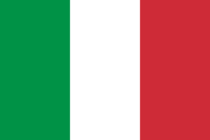
Italy
Italy (Italia ), officially the Italian Republic (Repubblica Italiana ), is a country consisting of a peninsula delimited by the Alps and surrounded by several islands. Italy is located in south-central Europe, and it is also considered a part of western Europe. A unitary parliamentary republic with its capital in Rome, the country covers a total area of and shares land borders with France, Switzerland, Austria, Slovenia, and the enclaved microstates of Vatican City and San Marino. Italy has a territorial exclave in Switzerland (Campione) and a maritime exclave in Tunisian waters (Lampedusa). With around 60 million inhabitants, Italy is the third-most populous member state of the European Union. Due to its central geographic location in Southern Europe and the Mediterranean, Italy has historically been home to myriad peoples and cultures. In addition to the various ancient peoples dispersed throughout what is now modern-day Italy, the most predominant being the Indo-European Italic peoples who gave the peninsula its name, beginning from the classical era, Phoenicians and Carthaginians founded colonies mostly in insular Italy, Greeks established settlements in the so-called Magna Graecia of Southern Italy, while Etruscans and Celts inhabited central and northern Italy respectively. An Italic tribe known as the Latins formed the Roman Kingdom in the 8th century BC, which eventually became a republic with a government of the Senate and the People. The Roman Republic initially conquered and assimilated its neighbours on the Italian peninsula, eventually expanding and conquering parts of Europe, North Africa and Asia. By the first century BC, the Roman Empire emerged as the dominant power in the Mediterranean Basin and became a leading cultural, political and religious centre, inaugurating the Pax Romana, a period of more than 200 years during which Italy's law, technology, economy, art, and literature developed. Italy remained the homeland of the Romans and the metropole of the empire, whose legacy can also be observed in the global distribution of culture, governments, Christianity and the Latin script. During the Early Middle Ages, Italy endured the fall of the Western Roman Empire and barbarian invasions, but by the 11th century numerous rival city-states and maritime republics, mainly in the northern and central regions of Italy, rose to great prosperity through trade, commerce and banking, laying the groundwork for modern capitalism. These mostly independent statelets served as Europe's main trading hubs with Asia and the Near East, often enjoying a greater degree of democracy than the larger feudal monarchies that were consolidating throughout Europe; however, part of central Italy was under the control of the theocratic Papal States, while Southern Italy remained largely feudal until the 19th century, partially as a result of a succession of Byzantine, Arab, Norman, Angevin, Aragonese and other foreign conquests of the region. The Renaissance began in Italy and spread to the rest of Europe, bringing a renewed interest in humanism, science, exploration and art. Italian culture flourished, producing famous scholars, artists and polymaths. During the Middle Ages, Italian explorers discovered new routes to the Far East and the New World, helping to usher in the European Age of Discovery. Nevertheless, Italy's commercial and political power significantly waned with the opening of trade routes that bypassed the Mediterranean. Centuries of rivalry and infighting between the Italian city-states, such as the Italian Wars of the 15th and 16th centuries, left Italy fragmented and several Italian states were conquered and further divided by multiple European powers over the centuries. By the mid-19th century, rising Italian nationalism and calls for independence from foreign control led to a period of revolutionary political upheaval. After centuries of foreign domination and political division, Italy was almost entirely unified in 1861, establishing the Kingdom of Italy as a great power. From the late 19th century to the early 20th century, Italy rapidly industrialised, mainly in the north, and acquired a colonial empire, while the south remained largely impoverished and excluded from industrialisation, fuelling a large and influential diaspora. Despite being one of the four main allied powers in World War I, Italy entered a period of economic crisis and social turmoil, leading to the rise of the Italian fascist dictatorship in 1922. Participation in World War II on the Axis side ended in military defeat, economic destruction and the Italian Civil War. Following the liberation of Italy the country abolished their monarchy, established a democratic Republic and enjoyed a prolonged economic boom, becoming a highly developed country. Today, Italy is considered to be one of the world's most culturally and economically advanced countries, with the world's eighth-largest economy by nominal GDP (third in the European Union), sixth-largest national wealth and third-largest central bank gold reserve. It ranks very highly in life expectancy, quality of life, healthcare, and education. The country plays a prominent role in regional and global economic, military, cultural and diplomatic affairs; it is both a regional power and a great power, and is ranked the world's eighth most-powerful military. Italy is a founding and leading member of the European Union and a member of numerous international institutions, including the UN, NATO, the OECD, the OSCE, the WTO, the G7, the G20, the Union for the Mediterranean, the Council of Europe, Uniting for Consensus, the Schengen Area and many more. The country has long been a global centre of art, music, literature, philosophy, science and technology, and fashion, and has greatly influenced and contributed to diverse fields including cinema, cuisine, sports, jurisprudence, banking and business. As a reflection of its cultural wealth, Italy is home to the world's largest number of World Heritage Sites (55), and is the fifth-most visited country.
Смотреть все
0
0
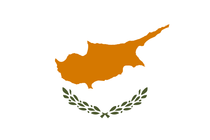
Cyprus
Cyprus (Κύπρος Kıbrıs ), officially called the Republic of Cyprus, is an island country in the Eastern Mediterranean. The third largest and third most populous island in the Mediterranean, it is located south of Turkey; west of Syria and Lebanon; north of Egypt, Israel, and the Palestinian region of the Gaza Strip; and southeast of Greece. The earliest known human activity on the island dates to around the 10th millennium BC. Archaeological remains from this period include the well-preserved Neolithic village of Khirokitia, and Cyprus is home to some of the oldest water wells in the world. Cyprus was settled by Mycenaean Greeks in two waves in the 2nd millennium BC. As a strategic location in the Middle East, it was subsequently occupied by several major powers, including the empires of the Assyrians, Egyptians and Persians, from whom the island was seized in 333 BC by Alexander the Great. Subsequent rule by Ptolemaic Egypt, the Classical and Eastern Roman Empire, Arab caliphates for a short period, the French Lusignan dynasty and the Venetians, was followed by over three centuries of Ottoman rule between 1571 and 1878 (de jure until 1914). Cyprus was placed under the UK's administration based on the Cyprus Convention in 1878 and was formally annexed by the UK in 1914. While Turkish Cypriots made up 18% of the population, the partition of Cyprus and creation of a Turkish state in the north became a policy of Turkish Cypriot leaders and Turkey in the 1950s. Turkish leaders for a period advocated the annexation of Cyprus to Turkey as Cyprus was considered an "extension of Anatolia" by them; while, since the 19th century, the majority Greek Cypriot population and its Orthodox church had been pursuing union with Greece, which became a Greek national policy in the 1950s. Following nationalist violence in the 1950s, Cyprus was granted independence in 1960. The crisis of 1963–64 brought further intercommunal violence between Greek Cypriots and Turkish Cypriots, which displaced more than 25,000 Turkish Cypriots into enclaves and brought the end of Turkish Cypriot representation in the republic. On 15 July 1974, a coup d'état was staged by Greek Cypriot nationalists and elements of the Greek military junta in an attempt at enosis, the incorporation of Cyprus into Greece. This action precipitated the Turkish invasion of Cyprus on 20 July, which led to the capture of the present-day territory of Northern Cyprus in the following month, after a ceasefire collapsed, and the displacement of over 150,000 Greek Cypriots and 50,000 Turkish Cypriots. A separate Turkish Cypriot state in the north was established by unilateral declaration in 1983; the move was widely condemned by the international community, with Turkey alone recognising the new state. These events and the resulting political situation are matters of a continuing dispute. The Republic of Cyprus has de jure sovereignty over the entire island, including its territorial waters and exclusive economic zone, with the exception of the Sovereign Base Areas of Akrotiri and Dhekelia, which remain under the UK's control according to the London and Zürich Agreements. However, the Republic of Cyprus is de facto partitioned into two main parts: the area under the effective control of the Republic, located in the south and west and comprising about 59% of the island's area, and the north, administered by the self-declared Turkish Republic of Northern Cyprus, covering about 36% of the island's area. Another nearly 4% of the island's area is covered by the UN buffer zone. The international community considers the northern part of the island to be territory of the Republic of Cyprus occupied by Turkish forces. The occupation is viewed as illegal under international law and amounting to illegal occupation of EU territory since Cyprus became a member of the European Union. Cyprus is a major tourist destination in the Mediterranean. With an advanced, high-income economy and a very high Human Development Index, the Republic of Cyprus has been a member of the Commonwealth since 1961 and was a founding member of the Non-Aligned Movement until it joined the European Union on 1 May 2004. On 1 January 2008, the Republic of Cyprus joined the eurozone.
Смотреть все
0
0
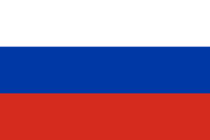
Russia
| capital = Moscow | coordinates = | largest_city = capital | languages_type = Official language | languages = Russian | languages2_type = | languages2 = See Languages of Russia | ethnic_groups = | ethnic_groups_year = 2010 | ethnic_groups_ref = | leader_title1 = President | leader_name1 = Vladimir Putin | leader_title2 = Prime Minister | leader_name2 = Mikhail Mishustin | leader_title3 = Speaker of theFederation Council | leader_name3 = Valentina Matviyenko | leader_title4 = Speaker of theState Duma | leader_name4 = Vyacheslav Volodin | leader_title5 = Chief Justice | leader_name5 = Vyacheslav Lebedev | legislature = Federal Assembly | upper_house = Federation Council | lower_house = State Duma | sovereignty_type = Formation | established_event1 = Novgorod built | established_date1 = | established_event2 = | established_date2 = 879 | established_event3 = Duchy of Moscow | established_date3 = 1283 | established_event4 = Tsardom of Russia | established_date4 = 16 January 1547 | established_event5 = Russian Empire | established_date5 = 22 October 1721 | established_event6 = | established_date6 = 15 March 1917 | established_event7 = | established_date7 = 8 December 1991 | established_event8 = Current constitution | established_date8 = 12 December 1993 | area_km2 = 17098246 | area_footnote = (without Crimea) | area_rank = 1st | percent_water = 13 | population_estimate = | population_estimate_year = 2020 | population_estimate_rank = 9th | population_density_km2 = 8.4 | population_density_sq_mi = 21.5 | population_density_rank = 225th | GDP_PPP = $4.519 trillion | GDP_PPP_year = 2020 | GDP_PPP_rank = 5th | GDP_PPP_per_capita = $30,819 | Gini_rank = 98th | HDI = 0.824 | HDI_year = 2018 | HDI_change = increase | HDI_ref = | HDI_rank = 49th | currency = Russian ruble (₽) | currency_code = RUB | utc_offset = +2 to +12 | date_format = dd.mm.yyyy | drives_on = right | calling_code = +7 | cctld = | religion = Predominately Orthodox Christianity. See Religion in Russia | today = }} Russia (Росси́я), or the Russian Federation, is a transcontinental country located in Eastern Europe and Northern Asia. Covering an area of it is the largest country in the world by area, spanning more than one-eighth of the Earth's inhabited land area, stretching eleven time zones, and bordering 16 sovereign nations. The territory of Russia extends from the Baltic Sea in the west to the Pacific Ocean in the east, and from the Arctic Ocean in the north to the Black Sea and the Caucasus in the south. With 146.7 million inhabitants living in the country's 85 federal subjects, Russia's capital and largest city is Moscow; other major urban areas include Saint Petersburg, Novosibirsk, Yekaterinburg, Nizhny Novgorod, Kazan and Chelyabinsk. The East Slavs emerged as a recognisable group in Europe between the 3rd and 8th centuries AD. The medieval state of Rus' arose in the 9th century. In 988 it adopted Orthodox Christianity from the Byzantine Empire, beginning the synthesis of Byzantine and Slavic cultures that defined Russian culture for the next millennium. Rus' ultimately disintegrated into a number of smaller states, until it was finally reunified by the Grand Duchy of Moscow in the 15th century. By the 18th century, the nation had greatly expanded through conquest, annexation, and exploration to become the Russian Empire, which became a major European power, and the third-largest empire in history, stretching from Norway on the west to Canada on the east. Following the Russian Revolution, the Russian SFSR became the largest and leading constituent of the Soviet Union, the world's first constitutionally socialist state. The Soviet Union played a decisive role in the Allied victory in World War II, and emerged as a recognised superpower and rival to the United States during the Cold War. The Soviet era saw some of the most significant technological achievements of the 20th century, including the world's first human-made satellite and the launching of the first humans in space. Following the dissolution of the Soviet Union in 1991, the Russian SFSR reconstituted itself as the Russian Federation and is recognised as the continuing legal personality and a successor of the USSR. Since 1993, Russia has been governed as a federal semi-presidential republic. His government has been accused by non-governmental organisations of numerous human rights abuses, authoritarianism and corruption. In response, Putin has argued that Western-style liberalism is obsolete in Russia, while maintaining that the country is still a democratic nation. The Russian economy ranks as the fifth-largest in Europe, the eleventh-largest in the world by nominal GDP and the fifth-largest by PPP. Russia's extensive mineral and energy resources are the largest such reserves in the world, making it one of the leading producers of oil and natural gas globally. Russia is a major great power, as well as a regional power, and has been characterised as a potential superpower. The Russian Armed Forces have been ranked as the world's second most powerful, and the most powerful in Europe. Russia hosts the world's ninth-greatest number of UNESCO World Heritage Sites, at 29, and is among the world's most popular tourist destinations. It is a permanent member of the United Nations Security Council and an active global partner of ASEAN, as well as a member of the Shanghai Cooperation Organisation (SCO), the G20, the Council of Europe, the Asia-Pacific Economic Cooperation (APEC), the Organization for Security and Co-operation in Europe (OSCE), the International Investment Bank (IIB) and the World Trade Organization (WTO), as well as being the leading member of the Commonwealth of Independent States (CIS), the Collective Security Treaty Organization (CSTO) and a member of the Eurasian Economic Union (EAEU).
Смотреть все
0
0
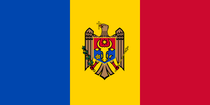
Moldova
Moldova , officially the Republic of Moldova (Republica Moldova), is a landlocked country in Eastern Europe. It is bordered by Romania to the west and Ukraine to the north, east, and south. The capital city is Chișinău. Most of the Moldovan territory was a part of the Principality of Moldavia from the 14th century until 1812, when it was ceded to the Russian Empire by the Ottoman Empire (to which Moldavia was a vassal state) and became known as Bessarabia. In 1856, southern Bessarabia was returned to Moldavia, which three years later united with Wallachia to form Romania, but Russian rule was restored over the whole of the region in 1878. During the 1917 Russian Revolution, Bessarabia briefly became an autonomous state within the Russian Republic, known as the Moldavian Democratic Republic. In February 1918, the Moldavian Democratic Republic declared independence and then integrated into Romania later that year following a vote of its assembly. The decision was disputed by Soviet Russia, which in 1924 established, within the Ukrainian SSR, a Moldavian autonomous republic (MASSR) on partially Moldovan-inhabited territories to the east of Bessarabia. In 1940, as a consequence of the Molotov–Ribbentrop Pact, Romania was compelled to cede Bessarabia to the Soviet Union, leading to the creation of the Moldavian Soviet Socialist Republic (Moldavian SSR), which included the greater part of Bessarabia and the westernmost strip of the former MASSR (east of the Dniester River). On 27 August 1991, as the dissolution of the Soviet Union was underway, the Moldavian SSR declared independence and took the name Moldova. The constitution of Moldova was adopted in 1994. The strip of the Moldovan territory on the east bank of the Dniester has been under the de facto control of the breakaway government of Transnistria since 1990. Due to a decrease in industrial and agricultural output following the dissolution of the Soviet Union, the service sector has grown to dominate Moldova's economy and is over 60% of the nation's GDP. It is the poorest country in Europe by GDP per capita, and it has the lowest Human Development Index in the continent. Moldova is a parliamentary republic with a president as head of state and a prime minister as head of government. It is a member state of the United Nations, the Council of Europe, the World Trade Organization (WTO), the Organization for Security and Cooperation in Europe (OSCE), the GUAM Organization for Democracy and Economic Development, the Commonwealth of Independent States (CIS), and the Organization of the Black Sea Economic Cooperation (BSEC).
Смотреть все
0
0
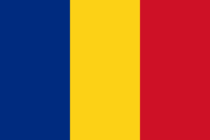
Romania
Romania (România ) is a country located at the crossroads of Central, Eastern, and Southeastern Europe. It shares land borders with Bulgaria to the south, Ukraine to the north, Hungary to the west, Serbia to the southwest, and Moldova to the east and has its opening to the Black Sea. It has a predominantly temperate-continental climate. With a total area of Romania is the 12th-largest country in Europe and the 7th most populous member state of the European Union, having approximately 20 million inhabitants. Its capital and largest city is Bucharest. Other major urban areas include: Cluj-Napoca, Timișoara, Iași, Constanța, Craiova, Brașov, and Galați. The River Danube, Europe's second-longest river, rises in Germany's Black Forest and flows in a generally southeasterly direction for coursing through ten countries before emptying into Romania's Danube Delta. The Carpathian Mountains, which cross Romania from the north to the southwest, include Moldoveanu Peak, at an altitude of . Modern Romania was formed in 1859 through a personal union of the Danubian Principalities of Moldavia and Wallachia. The new state, officially named Romania since 1866, gained independence from the Ottoman Empire in 1877. Following World War I, after declaring its neutrality in 1914, Romania fought on the side of the Allied Powers beginning in 1916. Afterwards Bukovina, Bessarabia, Transylvania as well as parts of Banat, Crișana, and Maramureș became part of the sovereign Kingdom of Romania. In June–August 1940, as a consequence of the Molotov–Ribbentrop Pact and Second Vienna Award, Romania was compelled to cede Bessarabia and Northern Bukovina to the Soviet Union, and Northern Transylvania to Hungary. In November 1940, Romania signed the Tripartite Pact and, consequently, in June 1941 entered World War II on the Axis side, fighting against the Soviet Union until August 1944, when it joined the Allies and recovered Northern Transylvania. Following the war, under the occupation of the Red Army's forces, Romania became a socialist republic and a member of the Warsaw Pact. After the 1989 Revolution, Romania began a transition towards democracy and a market economy. Romania ranks 52nd in the Human Development Index, and is a developing country with a high-income economy. Following rapid economic growth in the early 2000s, Romania has an economy based predominantly on services and is a producer and net exporter of machines and electric energy, featuring companies like Automobile Dacia and OMV Petrom. It has been a member of the United Nations since 1955, part of NATO since 2004, and part of the European Union since 2007. An overwhelming majority of the population identifies as ethnic Romanian and Eastern Orthodox Christian and are native speakers of Romanian, a Romance language.
Смотреть все
0
0
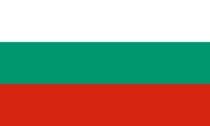
Bulgaria
Bulgaria (България), officially the Republic of Bulgaria (Република България, ), is a country in Southeastern Europe. It is bordered by Romania to the north, Serbia and North Macedonia to the west, Greece and Turkey to the south, and the Black Sea to the east. The capital and largest city is Sofia; other major cities are Plovdiv, Varna and Burgas. With a territory of Bulgaria is Europe's sixteenth-largest country. One of the earliest societies in the lands of modern-day Bulgaria was the Neolithic Karanovo culture, which dates back to 6,500 BC. In the 6th to 3rd century BC the region was a battleground for ancient Thracians, Persians, Celts and Macedonians; stability came when the Roman Empire conquered the region in AD 45. The Eastern Roman Empire lost some of these territories to the numerous early Slavs. They were invaded by small number of warlike Bulgars in the late 7th century who subdued the Slavs and founded there the First Bulgarian Empire in AD 681. It dominated most of the Balkans and significantly influenced Slavic cultures by developing the Cyrillic script. This state lasted until the early 11th century, when Byzantine emperor Basil II conquered and dismantled it. A successful Bulgarian revolt in 1185 established a Second Bulgarian Empire, which reached its apex under Ivan Asen II (1218–1241). After numerous exhausting wars and feudal strife, the empire disintegrated in 1396 and fell under Ottoman rule for nearly five centuries. The Russo-Turkish War of 1877–78 resulted in the formation of the third and current Bulgarian state. Many ethnic Bulgarians were left outside the new nation's borders, which stoked irredentist sentiments that led to several conflicts with its neighbours and alliances with Germany in both world wars. In 1946 Bulgaria came under the Soviet-led Eastern Bloc and became a one-party socialist state The ruling Communist Party gave up its monopoly on power after the revolutions of 1989 and allowed multiparty elections. Bulgaria then transitioned into a democracy and a market-based economy. Since adopting a democratic constitution in 1991, Bulgaria has been a unitary parliamentary republic composed of 28 provinces, with a high degree of political, administrative, and economic centralisation. Bulgaria is a member of the European Union, NATO, and the Council of Europe; it is a founding state of the Organization for Security and Co-operation in Europe (OSCE) and has taken a seat on the UN Security Council three times. Its market economy is part of the European Single Market and mostly relies on services, followed by industry—especially machine building and mining—and agriculture. Bulgaria is a developing country with an upper-middle-income economy, very high Human Development Index; although it has the lowest GDP per capita and joint-lowest Human Development Index in the European Union. Widespread corruption is a major socioeconomic issue; Bulgaria ranked as the most corrupt country in the European Union in 2018. The country also faces a demographic crisis, with its population shrinking annually since the late 1980s; it currently numbers roughly seven million, down from a peak of nearly nine million in 1988.
Смотреть все
0
0
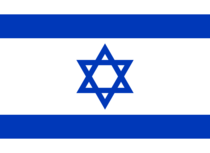
Israel
Israel (יִשְׂרָאֵל; إِسْرَائِيل), formally known as the State of Israel (מְדִינַת יִשְׂרָאֵל, ''), is a country in Western Asia, located on the southeastern shore of the Mediterranean Sea and the northern shore of the Red Sea. It has land borders with Lebanon to the north, Syria to the northeast, Jordan on the east, the Palestinian territories of the West Bank and Gaza Strip to the east and west, respectively, and Egypt to the southwest. The country contains geographically diverse features within its relatively small area. Israel's economic and technological center is Tel Aviv, while its seat of government and proclaimed capital is Jerusalem, although the state's sovereignty over Jerusalem has only partial recognition. Israel has evidence of the earliest migration of hominids out of Africa. Canaanite tribes are archaeologically attested since the Middle Bronze Age, The successful Maccabean Revolt led to an independent Hasmonean kingdom by 110 BCE, which in 63 BCE however became a client state of the Roman Republic that subsequently installed the Herodian dynasty in 37 BCE, and in 6 CE created the Roman province of Judea. Judea lasted as a Roman province until the failed Jewish revolts resulted in widespread destruction, and the renaming of the region from Iudaea to Syria Palaestina. Jewish presence in the region has persisted to a certain extent over the centuries. In the 7th century CE, the Levant was taken from the Byzantine Empire by the Arabs and remained in Muslim control until the First Crusade of 1099, followed by the Ayyubid conquest of 1187. The Mamluk Sultanate of Egypt extended its control over the Levant in the 13th century until its defeat by the Ottoman Empire in 1517. During the 19th century, national awakening among Jews led to the establishment of the Zionist movement in the diaspora followed by waves of immigration to Ottoman Syria and later Mandatory Palestine. In 1947, the United Nations (UN) adopted a Partition Plan for Palestine recommending the creation of independent Arab and Jewish states and an internationalized Jerusalem. Israel has since fought several wars with Arab countries, and since the Six-Day War in June 1967 held occupied territories including the West Bank, Golan Heights and the Gaza Strip (still considered occupied after the 2005 disengagement, although some legal experts dispute this claim). It extended its laws to the Golan Heights and East Jerusalem, but not the West Bank. Israel's occupation of the Palestinian territories is the world's longest military occupation in modern times. Efforts to resolve the Israeli–Palestinian conflict have not resulted in a final peace agreement, while Israel has signed peace treaties with both Egypt and Jordan. In its Basic Laws, Israel defines itself as a Jewish and democratic state and the nation state of the Jewish people. The country has a liberal democracy (one of only two in the Middle East and North Africa region, the other being Tunisia), with a parliamentary system, proportional representation, and universal suffrage. The prime minister is head of government and the Knesset is the legislature. With a population of around 9 million as of 2019, Israel is a developed country and an OECD member. It has the world's 31st-largest economy by nominal GDP, and is the most developed country currently in conflict. It has the highest standard of living in the Middle East, percentage of citizens holding a tertiary education degree, research and development spending by GDP percentage, women's safety, life expectancy, innovativeness, and happiness.
Смотреть все
0
0
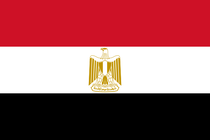
Egypt
Egypt (مِصر ), officially the Arab Republic of Egypt, is a transcontinental country spanning the northeast corner of Africa and southwest corner of Asia by a land bridge formed by the Sinai Peninsula. Egypt is a Mediterranean country bordered by the Gaza Strip (Palestine) and Israel to the northeast, the Gulf of Aqaba and the Red Sea to the east, Sudan to the south, and Libya to the west. Across the Gulf of Aqaba lies Jordan, across the Red Sea lies Saudi Arabia, and across the Mediterranean lie Greece, Turkey and Cyprus, although none share a land border with Egypt. Egypt has one of the longest histories of any country, tracing its heritage back to the 6th–4th millennia BCE. Considered a cradle of civilisation, Ancient Egypt saw some of the earliest developments of writing, agriculture, urbanisation, organised religion and central government. Iconic monuments such as the Giza Necropolis and its Great Sphinx, as well the ruins of Memphis, Thebes, Karnak, and the Valley of the Kings, reflect this legacy and remain a significant focus of scientific and popular interest. Egypt's long and rich cultural heritage is an integral part of its national identity, which has endured, and often assimilated, various foreign influences, including Greek, Persian, Roman, Arab, Ottoman Turkish, and Nubian. Egypt was an early and important centre of Christianity, but was largely Islamised in the seventh century and remains a predominantly Muslim country, albeit with a significant Christian minority. From the 16th to the beginning of the 20th century, Egypt was ruled by foreign imperial powers: the Ottoman Empire and the British Empire. Modern Egypt dates back to 1922, when it gained nominal independence from the British Empire as a monarchy. However, British military occupation of Egypt continued, and many Egyptians believed that the monarchy was an instrument of British colonialism. Following the 1952 revolution, Egypt expelled British soldiers and bureaucrats and ended British occupation, nationalized the British-held Suez Canal, exiled King Farouk and his family, and declared itself a republic. In 1958 it merged with Syria to form the United Arab Republic, which dissolved in 1961. Throughout the second half of the 20th century, Egypt endured social and religious strife and political instability, fighting several armed conflicts with Israel in 1948, 1956, 1967 and 1973, and occupying the Gaza Strip intermittently until 1967. In 1978, Egypt signed the Camp David Accords, officially withdrawing from the Gaza Strip and recognising Israel. The country continues to face challenges, from political unrest, including the recent 2011 revolution and its aftermath, to terrorism and economic underdevelopment. Egypt's current government is a semi-presidential republic headed by President Abdel Fattah el-Sisi, which has been described by a number of watchdogs as authoritarian. Islam is the official religion of Egypt and Arabic is its official language. With over 100 million inhabitants, Egypt is the most populous country in North Africa, the Middle East, and the Arab world, the third-most populous in Africa (after Nigeria and Ethiopia), and the thirteenth-most populous in the world. The great majority of its people live near the banks of the Nile River, an area of about where the only arable land is found. The large regions of the Sahara desert, which constitute most of Egypt's territory, are sparsely inhabited. About half of Egypt's residents live in urban areas, with most spread across the densely populated centres of greater Cairo, Alexandria and other major cities in the Nile Delta. Egypt is considered to be a regional power in North Africa, the Middle East and the Muslim world, and a middle power worldwide. With one of the largest and most diversified economies in the Middle East, which is projected to become one of the largest in the world in the 21st century, Egypt has the third-largest economy in Africa, the world's 40th-largest economy by nominal GDP, and the 19-largest by PPP. Egypt is a founding member of the United Nations, the Non-Aligned Movement, the Arab League, the African Union, and the Organisation of Islamic Cooperation.
Смотреть все
0
0
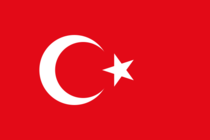
Turkey
Turkey (Türkiye ), officially the Republic of Turkey (Türkiye Cumhuriyeti ), is a transcontinental country located mainly on the Anatolian peninsula in Western Asia, with a smaller portion on the Balkan peninsula in Southeastern Europe. East Thrace, the part of Turkey in Europe, is separated from Anatolia by the Sea of Marmara, the Bosporus and the Dardanelles (collectively called the Turkish Straits). Istanbul, which straddles Europe and Asia, is the largest city in the country, while Ankara is the capital. Turkey is bordered on its northwest by Greece and Bulgaria; north by the Black Sea; northeast by Georgia; east by Armenia, the Azerbaijani exclave of Nakhchivan and Iran; southeast by Iraq; south by Syria and the Mediterranean Sea; and west by the Aegean Sea. Approximately 70 to 80 percent of the country's citizens identify as Turkish, while Kurds are the largest minority, at between 15 to 20 percent of the population. At various points in its history, the region has been inhabited by diverse civilisations including the Anatolian peoples, Assyrians, Greeks, Thracians, Phrygians, Urartians, and Armenians. Hellenization started during the era of Alexander the Great and continued into the Byzantine era. The Seljuk Turks began migrating into the area in the 11th century, and their victory over the Byzantines at the Battle of Manzikert in 1071 symbolises the foundation of Turkey for many Turkish nationalists. The Seljuk Sultanate of Rûm ruled Anatolia until the Mongol invasion in 1243, when it disintegrated into small Turkish principalities called beyliks. Beginning in the late 13th century, the Ottomans started uniting the beyliks and conquering the Balkans. The Turkification of Anatolia increased during the Ottoman period. After Mehmed II conquered Constantinople in 1453, Ottoman expansion continued under Selim I. During the reign of Suleiman the Magnificent, the Ottoman Empire encompassed much of Southeast Europe, West Asia and North Africa and became a world power. From the late 18th century onwards, the empire's power declined with a gradual loss of territories and wars. In an effort to consolidate the weakening social and political foundations of the empire, Mahmud II started a period of modernisation in the early 19th century, bringing reforms in all areas of the state including the military and bureaucracy, along with the emancipation of all citizens. The 1913 coup d'état effectively put the country under the control of the Three Pashas, who were largely responsible for the Empire's entry into World War I in 1914. During World War I, the Ottoman government committed genocides against its Armenian, Assyrian and Pontic Greek subjects. After the Ottomans and the other Central Powers lost the war, the conglomeration of territories and peoples that had composed the Ottoman Empire was partitioned into several new states. The Turkish War of Independence, initiated by Mustafa Kemal Atatürk and his comrades against the occupying Allied Powers, resulted in the abolition of the sultanate on 1 November 1922, the replacement of the Treaty of Sèvres (1920) with the Treaty of Lausanne (1923), and the establishment of the Republic of Turkey on 29 October 1923, with Atatürk as its first president. Atatürk enacted numerous reforms, many of which incorporated various aspects of Western thought, philosophy and customs into the new form of Turkish government. Turkey is a charter member of the UN, an early member of NATO, the IMF, and the World Bank, and a founding member of the OECD, OSCE, BSEC, OIC, and G20. After becoming one of the early members of the Council of Europe in 1950, Turkey became an associate member of the EEC in 1963, joined the EU Customs Union in 1995, and started accession negotiations with the European Union in 2005. In a non-binding vote on 13 March 2019, the European Parliament called on the EU governments to suspend Turkey's accession talks; which, despite being stalled since 2018, remain active as of 2020. Turkey's economy and diplomatic initiatives have led to its recognition as a regional power and a newly industrialized state by several analysts, while its location has given it geopolitical and strategic importance throughout history. Turkey is a secular, unitary, formerly parliamentary republic that adopted a presidential system with a referendum in 2017; the new system came into effect with the presidential election in 2018. Turkey's current administration, headed by President Recep Tayyip Erdoğan of the AKP, has enacted measures to increase the influence of Islam and undermine Kemalist policies and freedom of the press.
Смотреть все
0
0
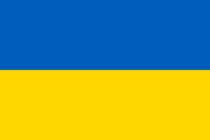
Ukraine
Ukraine (Україна, Украи́на) is a country in Eastern Europe. It is bordered by Russia to the north-east; Belarus to the north; Poland, Slovakia and Hungary to the west; and Romania, Moldova, and the Black Sea to the south. Ukraine is currently in a territorial dispute with Russia over the Crimean Peninsula, which Russia annexed in 2014. Including the Crimean Peninsula, Ukraine has an area of making it the second-largest country by area in Europe after Russia, and the 46th-largest country in the world. Excluding Crimea, Ukraine has a population of about 42 million, making it the eighth or ninth-most populous country in Europe, and the 32nd-most populous country in the world. Its capital and largest city is Kiev. Ukrainian is the official language and its alphabet is Cyrillic. The dominant religion in the country is Eastern Orthodoxy. The territory of modern Ukraine has been inhabited since 32,000 BC. During the Middle Ages, the area was a key centre of East Slavic culture, with the powerful state of Kievan Rus' forming the basis of Ukrainian identity. Following its fragmentation in the 13th century, the territory was contested, ruled and divided by a variety of powers, including the Polish–Lithuanian Commonwealth, Austria-Hungary, the Ottoman Empire and Russia. A Cossack republic emerged and prospered during the 17th and 18th centuries, but its territory was eventually split between Poland and the Russian Empire. After World War II the Western part of Ukraine merged into the Ukrainian Soviet Socialist Republic, and the whole country became a part of the Soviet Union as a single state entity. Ukraine gained its independence in 1991, following the dissolution of the Soviet Union at the end of the Cold War. Before its independence, Ukraine was typically referred to in English as "The Ukraine", but most sources have since moved to drop "the" from the name of Ukraine in all uses. it formed a limited military partnership with Russia and other CIS countries while also establishing a partnership with NATO in 1994. In 2013, after the government of President Viktor Yanukovych had decided to suspend the Ukraine-European Union Association Agreement and seek closer economic ties with Russia, a several-months-long wave of demonstrations and protests known as the Euromaidan began, which later escalated into the 2014 Ukrainian revolution that led to the overthrow of Yanukovych and the establishment of a new government. These events formed the background for the annexation of Crimea by Russia in March 2014, and the War in Donbass in April 2014. On 1 January 2016, Ukraine applied the economic component of the Deep and Comprehensive Free Trade Area with the European Union. and suffers from a very high poverty rate as well as severe corruption. However, because of its extensive fertile farmlands, Ukraine is one of the world's largest grain exporters. It also maintains the third-largest military in Europe after the French and Russian Armed Forces. Ukraine is a unitary republic under a semi-presidential system with separate powers: legislative, executive and judicial branches. The country is a member of the United Nations, the Council of Europe, the Organization for Security and Co-operation in Europe (OSCE), the GUAM organization, and one of the founding states of the Commonwealth of Independent States (CIS).
Смотреть все
1
0

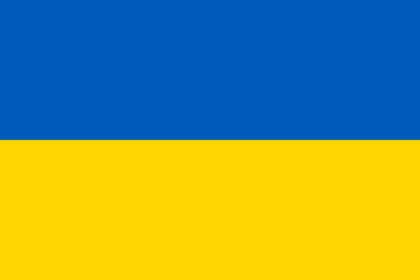






Комментарии